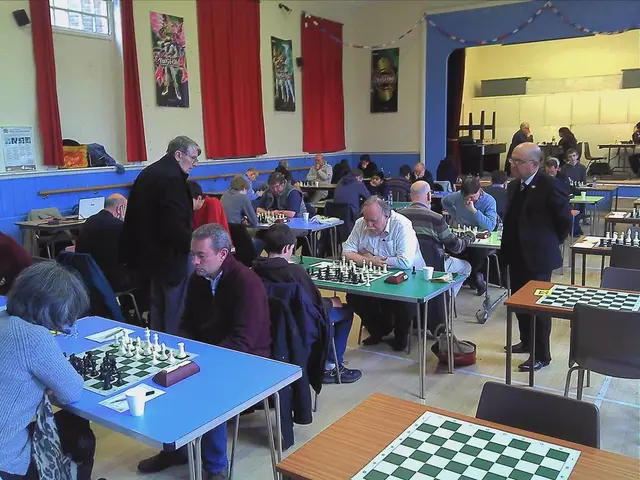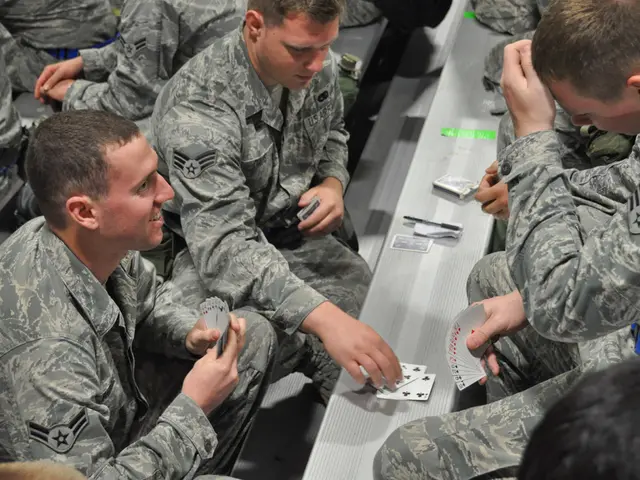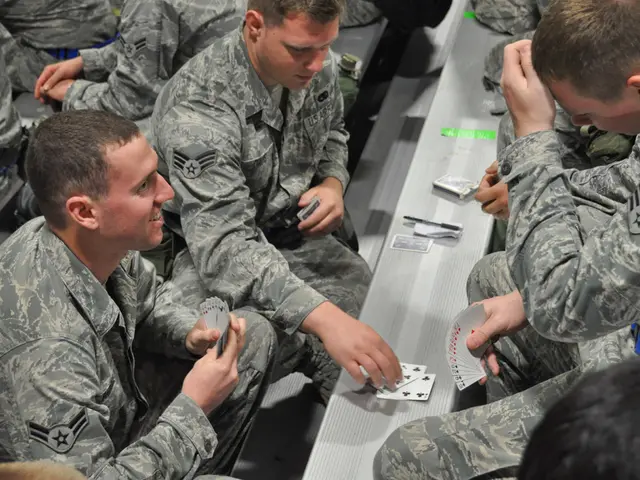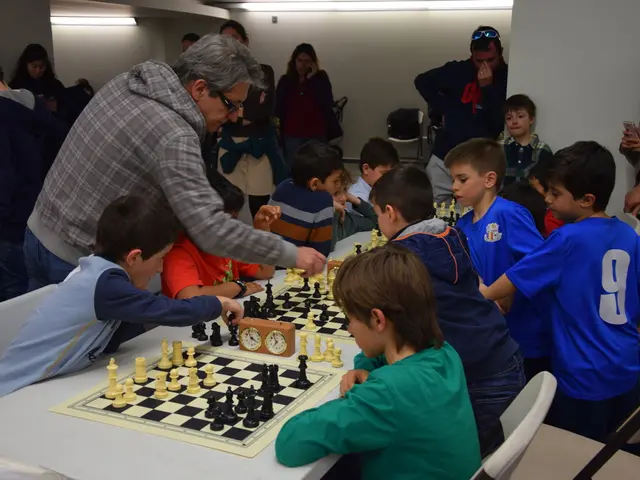Contestant Cliff Green Finishes in 8th Position, Earning $1,290 in Prize Money
In the heat of the poker game, an all-in call was made by Cliff Green, followed by John Donnelly's response. Both players put their cards on the table. Cliff Green played the King of Hearts and Ten of Clubs, while John Donnelly flaunted the Ace of Diamonds and Ace of Spades.
The board then revealed the Ace of Clubs, Four of Diamonds, Queen of Spades, Seven of Hearts, and another Queen of Clubs. With this setup, John Donnelly claimed the pot. Following the round, the score stood at 877,000 for John Donnelly and 0 for Cliff Green.
Now, let's dive into the poker strategy side of this game. When you find yourself in a skirmish like Cliff Green - with the King and Ten against John Donnelly's powerhouse Aces - several factors need consideration:
- Hand dominance: Donnelly's Aces are a beast, especially with the board mirroring an Ace. It's a tough ask for Green to beat that hand.
- Board texture: The board didn't exactly open up possibilities for Green to salvage a winning hand. The Queens and Ace on the table weren't offering any strong draws to Green's hand.
- Pot odds: To decide whether to call the all-in, you need to calculate the pot odds. If the pot is too small compared to the call cost, it might not be profitable to proceed, especially when the odds aren't in your favor.
- Expected Value (EV): The call's decision should also factor in the EV. If the EV is negative, it's usually smarter to fold.
- Opponent’s range: If Donnelly is aggressive and tends to push hard with strong hands, it lowers the chances of him bluffing. Makes it even tougher for Green to decide to call.
Given these points, folding would usually be the better move for Green's hand unless there's a strong read of Donnelly bluffing, which is unlikely given his strong hand. The high risk of losing and the limited reward potential might not be worth the gamble based on the odds and the board's layout.
In a nutshell, the rule or strategy here lends itself more towards folding the King-Ten hand against the Aces under these circumstances due to Donnelly's powerful hand and the unfavorable board layout.
In the casino-and-gambling world of poker, the casino game that Cliff Green and John Donnelly were playing, the strategy to fold a King-Ten hand against Aces is often recommended, especially when the board texture doesn't offer any strong draws and the opponent tends to be aggressive with a powerful hand. Casino-games like poker require careful consideration of hand dominance, pot odds, expected value, and opponent’s range to make informed decisions.







